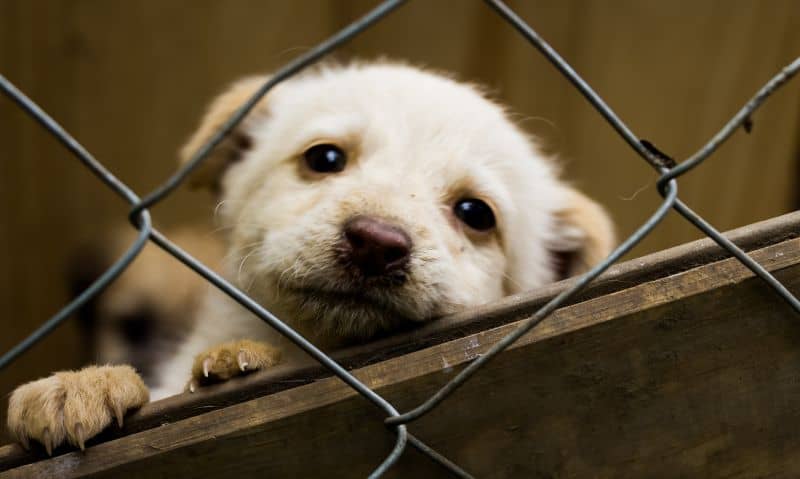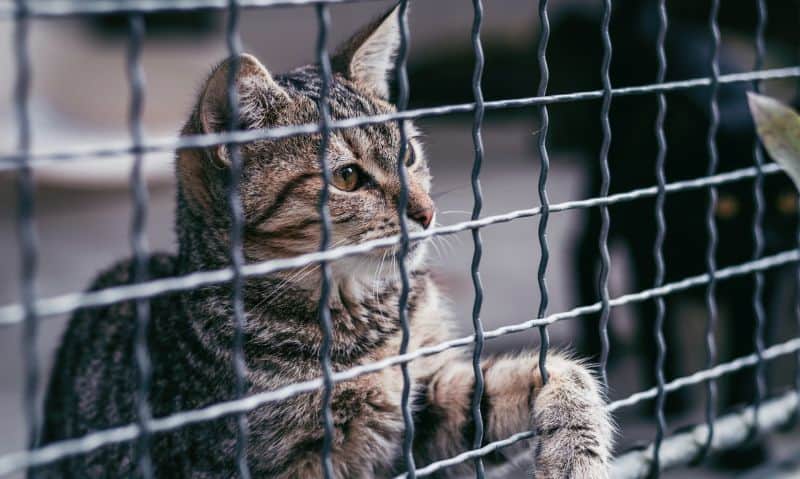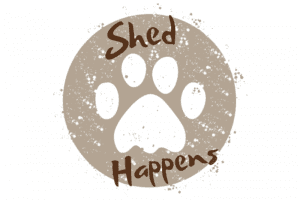What Is a Retail Rescue?
While we would love to believe that the world of animal rescue is black and white – you are saving lives, making a difference, and making the world a better place, this isn’t always the case. Recently, there has been much chatter about the darker side of animal rescue, also known as “retail rescue.”
But what is retail rescue, and how does this hurt the overall rescue movement?
As a rescue pet blogger and life-long rescue advocate, this is one topic that I simply couldn’t gloss over and ignore. Taking advantage of well-meaning adopters is NEVER okay.
In this article, we will dig into the questionable practices that fall under the heading of “retail rescue,” how this directly harms the ongoing efforts of committed rescuers everywhere, and what you can do to help.
What is Retail Rescue? How Does it Differ from Real Animal Rescue Efforts?
Retail rescue refers to any situation in which animals are bought and/or sold through rescue channels for financial profit.
If you were to peek at the books of a reputable rescue organization, you would quickly see why they are always so in need of donations and fundraisers. The amount of money coming in from adoption fees rarely, if ever, matches the amount going out to cover their expenses.
Consider, for a moment, the cost of caring and providing for all the animals in their care. That includes everything from food to medical bills.
“Rescues” (I use that term lightly) that fall under the umbrella of retail rescues will use questionable practices to tip the scales and allow themselves to profit from their so-called rescue efforts.
They often look to move animals through their care as quickly as possible, focusing on the money to be gained by adopting them out versus actively searching for the best homes.
Higher Than Normal Adoption Fees
The most obvious example of retail rescue is the practice of inflating adoption fees to boost the amount of money coming in.
This practice isn’t overly common because it’s easy to spot and question. But it does happen.
Lack of Medical Care/Post-Adoption Support
This is the most common form of retail rescue, and it gives rescue organizations everywhere a bad name.
Animals may be adopted without proper veterinary care. This ranges from failing to provide preventative hair, like vaccinations, to allowing sick animals to be placed in a home without treatment.
When it is discovered that the animal isn’t healthy, the rescue fails to step up and help remedy the situation. Instead, the new adopter is left to deal with the situation. Often this occurs when the rescue ghosts the adopter or accuses them of being the reason the animal is ill.
Just as they aren’t willing to provide physical and medical care, retail rescues also fail to assist with training or behavioural issues.
Backyard Breeders and Rescue
The rescue animal world and backyard breeders are directly in conflict with one another. Knowing that you may be surprised to learn that retail rescues will sometimes take advantage of the very people they advocate against.
If an organization is focused primarily on financial gain, they will seek to acquire the animals in highest demand at the lowest cost.
This often comes through the purchase of animals from backyard breeders and puppy mills.
After purchasing the animals (predominantly young puppies), they place them up for adoption, pricing their adoption fees high enough to make a profit.
Of course, they aren’t honest about where the animals came from. If they admit they are from a backyard breeder, they claim to have taken in the animals as rescues versus having purchased them.
Imported Rescue Dogs
Let me clarify: I am NOT saying that all rescues importing dogs are doing so as a retail rescue. Many GREAT organizations are importing dogs to give these sweet animals the second chance they deserve.
Of course, running a rescue focused on the process of importing dogs will come at a higher cost, which means higher adoption fees.
The problem occurs when a rescue only brings in young puppies or highly sought-after dogs and dramatically increases the price (more than needed to cover costs) while failing to provide the duty of care.
Inflated prices are easier to justify (and therefore hide), citing the transport costs. Upon closer inspection, the finances simply don’t add up.
In some cases, the animals are transported in inhumane ways to cut back on costs and maximize profit.

Why Retail Rescues are So Lucrative
If the questionable retail rescue practices result in inflated adoption fees, how can these individuals continue to find prospective adopters and make money?
There are several reasons why they continue to succeed despite taking advantage of people, including:
- They are master storytellers, convincing people the fees are higher for valid reasons
- Adoption fees may appear normal, with the failure to provide support or medical care not coming to light until later
- Retail rescues often prey on people frustrated with having been turned down by shelters or rescues
- They increase their adoption rates by only bringing in highly sought-after animals like young puppies and popular breeds
The hard truth is that they will continue to thrive as long as people are interested in adopting. Especially if potential adopters fail to do their research into the rescues they are considering.
How to Spot a Retail Rescue
If you are considering adopting a new pet, you may be wondering – How can I spot a retail rescue? How do I know if I am being taken advantage of?
Unfortunately, there is no neon sign warning you as you walk onto the property. But there are some red flags that you can watch out for:
- Little to no adoption vetting process, they are happy to just hand the animal over to the first adopter with cash in hand
- They require a non-refundable application fee just to be considered as an adopter
- No reviews or bad reviews of the organization from previous adopters
- Failing to provide veterinary paperwork with the adoption of an animal
- Not requiring adopters to sign a contract that stipulates you will return the animal to their care if you’re unable to keep them
- Only young puppies/kittens or high-demand purebred animals in their care
- Every animal in their care has a dramatic story to tell
Trust your gut if you have a bad feeling about a shelter or rescue organization! You don’t have to explain your decision to walk away or justify it to anyone.
What Can YOU Do to Make a Difference?
Now that we have established the many people and animals being hurt or taken advantage of by these individuals, all in the name of financial gain, what can we do to stop it?
Be Intentional with Donations
Often retail rescues will continue collecting donations or running fundraisers, stating that they are trying to cover growing medical costs or fund transport costs.
They may claim fraudulently to be non-profit or charitable organizations while functioning as for-profit businesses.
Before donating, take some time to research the rescue organizations that you are planning to support. Look for the same red flags that you would look for when adopting.
While your donation likely won’t make or break an organization, we can come together to remove a source of income and make the retail rescue less profitable. If they aren’t making money, these con artists (for lack of a better term) will move on to the next money-making opportunity.
Report the Problem
If you do spot a problem, say something to the authorities. The more complaints against an organization, the better the chance they will be investigated.
This includes adopters who have been scammed, volunteers who realize something is wrong with the organization they are volunteering for, or animal lovers who recognize something is happening in their community.
Education is Key
Many potential adopters are unaware of the risk of encountering a retail rescue. If you don’t know this is happening, you won’t be watching for red flags.
Creating awareness is one of the most important things we can do to stop these shady organizations.
Share news stories or informational articles like this that reveal the problem. If you know someone considering adopting a new pet, make sure they know what to look out for.
Do you have a retail rescue near you? Speak up about what’s happening. For example, one rescue in Toronto, Ontario, has made the news multiple times. A group of animal welfare advocates have built their own website to gather information from various sources in one convenient place.
It’s the animals that pay for these questionable decisions.
Don’t sit back and ignore the problem – use your voice to speak up for those that can’t speak up for themselves.

Have you ever encountered a retail rescue firsthand? If so, I invite you to share your story in the comments and help raise awareness of this problem!


